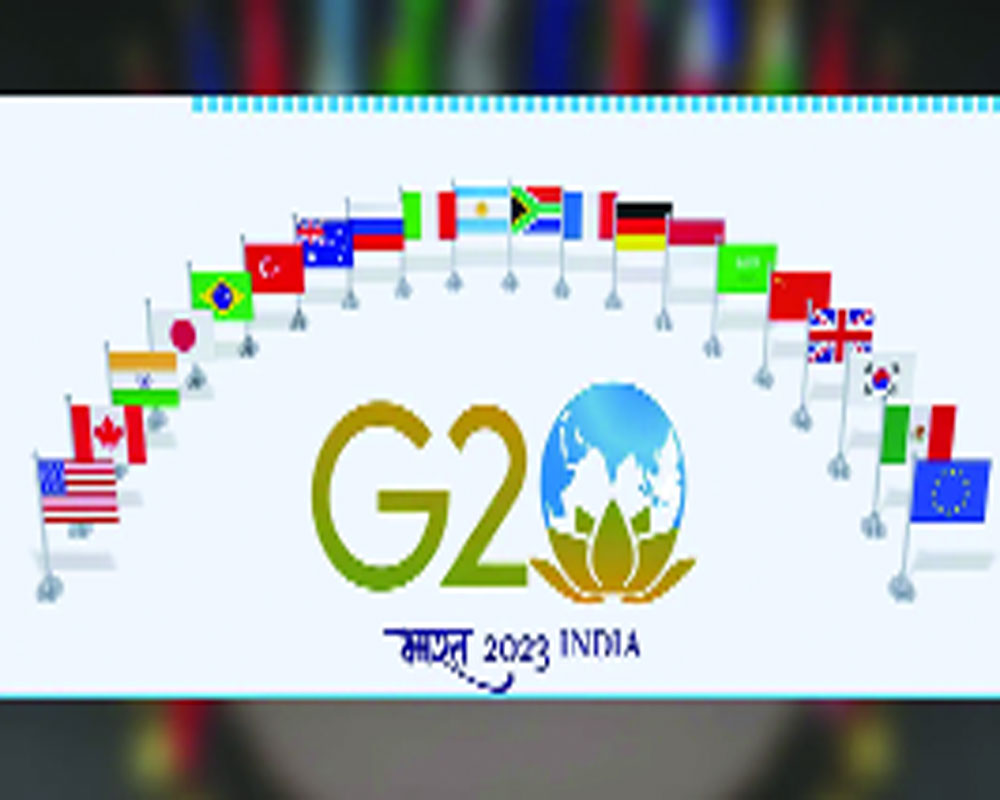India has underscored that no plan for the future of the planet Earth can be successful without the representation and recognition of all voices
The theme of the G20 summit under India’s Presidency was "Vasudhaiva Kutumbakam" or “One Earth, One Family, One Future." It is derived from the ancient Sanskrit text, Maha Upanishad. The theme essentially implies the message of global unity and is a perfect call upon all the nations of the world in the prevailing times of geopolitical tensions, because the protection and preservation of our planet for future generations is a shared responsibility that needs to be given top priority.
The clarion call to ensure human-centric progress transcending borders, ideologies and identities, at G20 summit. Building bridges.The main highlights were:
lGreen Development, Climate Finance and LiFE or Lifestyle for Environment: signifies environmentally sustainable and responsible choices at individual, societal, national, regional and international levels.
India’s focus on sustainable agriculture, through enhanced usage of Shree Anna or millets-superfoods, has had a global reach as these need less water to grow and help small farmers augment their produce and incomes. These will help alleviate global hunger and malnutrition and also bring focus on the importance of climate-smart and digital approaches to agriculture.
lWomen-led Development- The focus was on bridging the gender digital divide, reducing gaps in labour force participation and enabling a larger role for women in positions of leadership and decision-making.
l Democratising Supply Chains, amid the lesson learnt during COVID-19, when the world became distressed for medicines and lifesaving drugs to more than 150 countries.
l With India having become the face of the digital revolution in the era of Industry 4.0", it called the G20 countries towards accelerated, inclusive and resilient growth, including ethical use of Artificial Intelligence. With a focus on Innovation and Inclusiveness, the G20 Summit focused on the fact that a connected world isn't just about connection through technology but it is also about shared purpose, planet, prosperity, and future.
The changing geopolitical landscape in the Middle East is to be closely watched as well. With most of the protagonists from the Middle East attending the Summit, for India, the G20 presidency offered a unique chance to assert its position as an important and responsible global power. In a deeply divided international system, India is in a very unique position. While the comprehensive India-US ties have grown stronger, it still maintains strong economic ties with Russia. Given the trust that India enjoys on both sides, the summit offered a chance for India to emerge as a possible mediator, especially in the Ukraine crisis.
India’s firm belief in the concept of decentralisation is also evident by the fact that by the time India’s G20 Presidency term ends, over 220 meetings would have happened across 60 cities in all 28 states and 8 union territories. Overall, the G20 under India’s Presidency has been tremendously impactful as the world has witnessed India’s human-centric model of development, its vision and implementation of equitable, inclusive and responsible innovation, all aligning to the concept of Vasudhaiva Kutumbakam, and leaving no one behind. The G20 has emerged as the most influential bloc in the world, comprising 85 per cent of the global GDP,
India has underscored that no plan for the future of the planet Earth can be successful without the representation and recognition of all voices. India has strongly advocated the need to come out of a purely utilitarian worldview and embrace a ‘Sarva Jana Hitaaya, Sarva Jana Sukhaaya’ (for the benefit of all and the happiness of all) model as espoused by Lord Gautam Buddha in the 6th century BC.
(The writer is CEO and Editorial Director, IMPRI Impact and Policy Research Institute, New Delhi; views are personal)


























